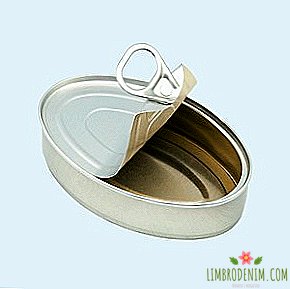Expiration date: When it is time to throw out products, medicines and cosmetics
The concept of shelf life is familiar to everyone.but they treat it differently: some as the most important limitation, others as formalities. We understand whether it is possible to take expired drugs, for how many years you can trust grandmother's canned food and when it is better to throw away cosmetics.

The term depends on the storage conditions
For any products or drugs that need to be kept in the refrigerator or freezer, the specified shelf life implies clear rules for storage. In a good way, the temperature of cooled medicines and products must be constantly maintained - but in fact, it is possible that the frozen fish managed to thaw out when electricity was turned off for several hours in the building, and the spare generator did not work. So, even if the expiration date is formally met, do not forget about common sense: pay attention to whether the packaging is intact and whether there is an unpleasant smell.
Food, depending on the shelf life is divided into several types. Especially perishable are products that can be stored only at a temperature not higher than +6 degrees. The shelf life of such food is usually from 6 to 72 hours from the time of manufacture; This type includes natural dairy products, chilled meat and fish, seasoned salads, cakes and pastries. Storage temperature of perishable products should not exceed 6 degrees, but the period is longer: from 3 to 30 days. These are cheeses without vacuum packaging, baked milk, thermally processed cottage cheese, milk mixtures in sealed packages, boiled sausages. Non-perishable goods are those that are safely stored for more than a month at room temperature. For them, humidity and exposure to direct sunlight are important. This type includes pasta, cereals and mixtures thereof, industrial canned food, some vegetables, caramel and confectionery such as sushiks or cookies.
What are dangerous canned
Homemade pickles or jams sometimes stand on the shelves for years - and in many cases, sadly, it is better to throw them away. In no case can not eat the contents, if it is covered with mold, fermented or if the lid of the jar swelled. This is due to the use of non-sterile utensils, and microbes multiplied in such blanks are hazardous to health. Rolled up is best kept in a cool dry place and not under the bright sun.
GOSTs for homemade canned food does not exist, but ideally the storage time should not exceed two years. After that, the banks may begin to lose tightness, fermentation can begin. Compotes and preserves from fruits with stones, primarily apricots and peaches, should not be stored for more than a year due to the accumulation of hydrocyanic acid. Special mention deserve mushrooms: because of the risk of botulism, salted mushrooms can be stored only under a plastic lid, in the refrigerator and not more than a year. Before salting mushrooms, you definitely need to boil - so if you were given a rolled up bank of dubious origin, it is better not to risk it.

What can you make stocks
There are products that can be stored for a very long time, without losing taste or becoming harmful. White rice is kept in excellent condition for up to thirty years, unless temperature drops or moisture increases; salt and sugar in dry conditions have almost no shelf life. For a very long time, nothing happens to dried beans, beans, peas, and strong alcohol like whiskey or brandy.
Products such as chocolate, dates, cookies, can also be very long - although their taste is likely to worsen over time. If you don’t see an obvious foreign plaque on the last year’s past, and there are no bugs in the package, you can eat it without harm to health. Industrial cans can also be stored for many years “in case of a zombie apocalypse”: their contents are stable under vacuum and complete tightness. But if the bank is swollen or damaged, it should be thrown away.
How to determine the shelf life of drugs
As early as 1979, drug manufacturers were obliged to indicate expiration dates on packages. Within the specified period, the effectiveness and safety of the drug are guaranteed. The terms are determined in special stability studies, which are carried out in two modes: one batch of the drug is stored in the right conditions, and the other - under sunlight, in a hot room or at high humidity. In some countries (for example, in EU countries) shelf life, which can be indicated on the packaging, is limited - and then the date will be indicated five years after release, even if the medicine does not spoil in twenty years (for example, activated carbon can be stored forever).
An article published by Harvard Medical School in 2003 tells about a study by the US FDA commissioned by the military. For many years, the army changed stocks of expensive medicines due to expired shelf life. The study examined more than one hundred prescription and over-the-counter medicines, and it turned out that 90% of them were suitable even fifteen years after the expiration date. The effectiveness of the drugs did not change or decreased slightly, and safety remained the same - the only exceptions were tetracycline, insulin, nitroglycerin and antibiotics in liquid form.

Is it possible to drink an expired pill
The term "shelf life" remains, from the point of view of scientists, controversial. In the publication of 2012, the authors noted that we can talk about several expiration dates. For example, the true shelf life is a philosophical concept, because no one will ever know it (for this you need to store an unlimited amount of time each tablet, periodically checking whether it has retained its qualities). The estimated shelf life is one that is determined in stability studies; The data shelf life is calculated using statistical algorithms. Finally, the period indicated on the label is the period that is shorter than all the expiration dates listed above. In fact, the manufacturer is obliged to ensure that the medicine will retain its qualities before the specified date, which means it gives a certain amount of time.
Much depends on the packaging: tablets in a blister retain their quality longer than in a bottle, which is periodically opened and where they collide with each other, gradually grinding. If the tablet has not changed color and structure, has not crumbled, and the packaging is intact, then in an emergency, you can take it even after several months after the specified expiration date. It should be borne in mind that if you fold the drugs in pill boxes or mini-containers, so as not to forget to take them on time, then you can store tablets in them for no more than ten days.
Liquid preparations have a clear shelf life and use after opening the package - bacteria can easily grow in them. In addition, syrups often contain sugar and therefore can be a particularly favorable medium for the reproduction of microbes. After the specified expiration date, no means for injection can be used. Carefully it is necessary to treat eye drops as well - they definitely cannot be used for more than a month after opening. If you accidentally touch the eyelashes or eyelid bacteria get into the drug, which rapidly multiply; the term of use provides that within a month the preservative will protect the drops, but after that they can become dangerous and cause, for example, conjunctivitis.
When to throw out powder and mascara
Cosmetics manufacturers also conduct stability studies and place products in different conditions: they heat, cool, freeze, shake, spin on a centrifuge, force bacteria and fungi to force them, to calculate whether the cream can withstand the touch of dirty fingers. As a result, two terms are determined: storage and use after opening, which usually indicate on the package. The shelf life of some cosmetics can be checked using a special calculator, for this you need to enter the brand name and serial number.
Moreover, if you did not have time to open the package, and the shelf life has already come out, then the tool is likely to lose in efficiency, but will not cause harm. But if the package was opened, you used the cream several times and remembered it a year later, then it is better to send it to the trash can: the result of using such cosmetics can be unpredictable, even allergic reactions and dermatitis. For decorative cosmetics, this also applies, and mascara, which you use every few months, can be a source of unwanted microorganisms.
Recall the simple rules of hygiene: cosmetics should be applied with clean hands or regularly washed with brushes or spatulas. It is better to give preference to packages with dispensers or pipettes, always close the lids tightly, do not store cosmetics under direct sunlight and refrigerate something that has not been used for a long time.
Photo: ZIQUIU - stock.adobe.com, Africa Studio - stock.adobe.com, goolyash - stock.adobe.com, vvoe - stock.adobe.com





